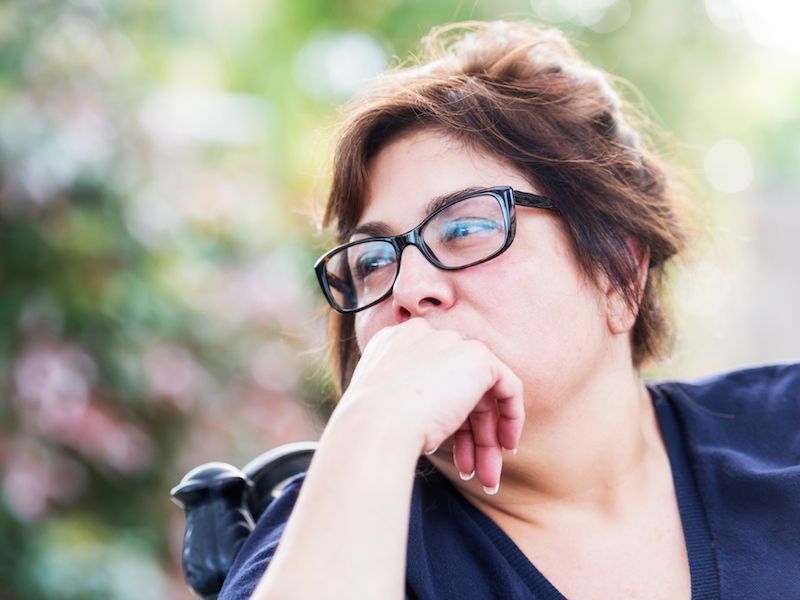
Studies indicate that you are twice as likely to have hearing loss if you have diabetes, according to the American Diabetes Association. If you are someone that associates hearing loss with aging or noise trauma, this may surprise you. Close to 500,000 of the1.9 million people diagnosed with diabetes in 2010 were under the age of 44. Evidence reveals that 250,000 of those younger people with the disease probably have some form on hearing loss.
The thing is that diabetes is only one in many ailments which can cost a person their hearing. Other than the apparent aspect of aging, what is the relationship between these diseases and hearing loss? Consider some illnesses that can lead to hearing loss.
Diabetes
What the link is between diabetes and hearing loss is uncertain but clinical evidence seems to indicate there is one. People with prediabetes, a condition that implies they might develop type 2 diabetes, tend to lose their hearing 30 percent faster than those with normal blood sugar levels.
While researchers don’t have a definitive answer as to why this happens, there are some theories. It is possible that harm to the blood vessels that feed the inner ear could be caused by high glucose levels. Diabetes is known to impact circulation, so that is a realistic assumption.
Meningitis
This infectious disease causes loss of hearing. Because of infection, the membranes that cover the spine and brain swell up and that defines meningitis. Studies show that 30 percent of people who develop this condition will also lose their hearing, either in part or in full. This infection is the second most common reason for hearing loss in the American youth.
The fragile nerves that relay signals to the inner ear are potentially damaged by meningitis. The brain has no means to interpret sound if it doesn’t get these signals.
Cardiovascular Disease
Ailments that affect the heart or blood vessels are covered under the umbrella term “cardiovascular disease”. This category contains these common diseases:
- High blood pressure
- Stroke
- Peripheral artery disease
- Atherosclerosis
- Heart failure
- Heart attack
Age related hearing loss is generally linked to cardiovascular diseases. The inner ear is susceptible to injury. When there is a change in blood flow, it might not get the oxygen and nutrients it needs to thrive, and damage to the inner ear then leads to loss of hearing.
Chronic Kidney Disease
A 2012 study published in The Laryngoscope found that people have an increased risk of losing their hearing if they have this condition. A separate study found that chance to be as high as 43 percent. It is possible that this relationship is a coincidence, though. There are lots of the same risk factors with kidney disease and other ailments associated with high blood pressure.
Toxins that accumulate in the blood due to kidney failure could also be responsible, theoretically. These toxins may damage the nerves in the inner ear, closing the connection it has with the brain.
Dementia
The connection between hearing loss and dementia goes both ways. A person’s chances of developing Alzheimer’s disease seems to be increased by cognitive impairment. Dementia happens because of brain atrophy and shrinkage. Difficulty hearing can accelerate that process.
The flip side of the coin is true, also. Someone who has dementia even though there is normal hearing will show a decline in their hearing as injury to the brain increases.
Mumps
Mumps is a viral infection that can cause children to lose their hearing when they’re very young. Loss of hearing may impact both ears or only one side. The reason this happens is the virus damages the cochlea in the inner ear. It’s the component of the ear that sends messages to the brain. The positive thing is, due to vaccination mumps are pretty rare at present. Not everyone who has the mumps will suffer from hearing loss.
Chronic Ear Infections
Treatment clears up the random ear infection so it’s not very risky for most people. For some, however, repeated infections take a toll on the tiny components that are needed for hearing like the eardrum or the small bones in the middle ear. When sound cannot reach the inner ear with enough force to send messages to the brain it’s called conductive hearing loss. Sensorineural hearing loss or nerve damage can also be caused by infections.
Many of the diseases that can cause hearing loss can be avoided by prevention. A healthy diet, plenty of exercise and regular sleep habits will go a long way to protecting your ear health throughout your life. You should also get regular hearing exams to make sure your ears stay healthy.
